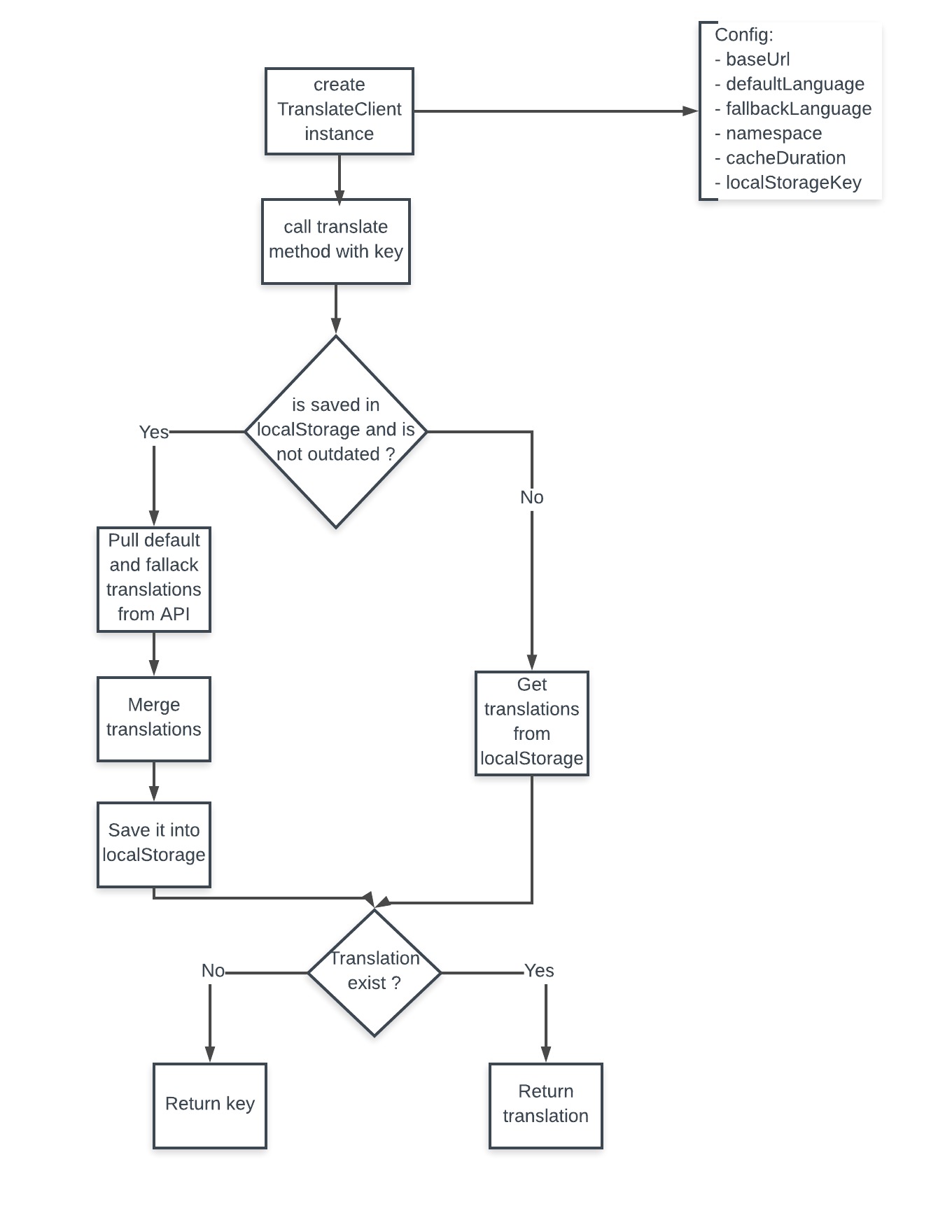-
- 5.1. How to get the client
- 5.1.1. Without ES6 modules
- 5.1.2. With ES6 modules
- 5.2. How to use it
- 5.1. How to get the client
It's a javascript client to use translate api.
- webpack
- vitest
- eslint
- Execute command
npm ci - Generate development file: execute command
npm run start(result path:dist/translate.js)
It will keep a process to re-generate the file each times you change the sources - Generate dist file: execute command
npm run build(result path:dist/translate.js) - Execute unit tests: execute command
npm run test(code coverage page path:coverage/lcov-report/index.html) - When you push your changes, don't forget to generate dist file !
- Update the npm package:
npm login(to log with yoctu account) andnpm publish(don't forget to change version in package.json)
- Fetch the project files (download, clone, etc...)
- Add a
<script>to use file indist/translate-client.js
- Fetch the project files (download, clone, etc...)
- Import the client with
import TranslateClient from 'translate-client-js''
- Create a new instance of Translate with
var translateClient = new TranslateClient(config)
Here is the default configuration :
{
baseUrl: '',
defaultLanguage: 'fr_FR',
fallbackLanguage: 'en_US',
namespace: '',
cacheDuration: 86400,
localStorageKey: 'translations'
}
- Call translate method
translateClient.translate(key)
The translate method will return a promise (check https://developer.mozilla.org/fr/docs/Web/JavaScript/Reference/Objets_globaux/Promise) - Use the promise
translateClient.translate(key)
.then(function(translation) {
console.log('Result: ' + translation);
})
.catch(function(error) {
console.log(error);
});
- You can use
translateClient.translateMultiple(keys)to translate an array of keys. It return the same type of promise astranslateClient.translate(key) - You can use
translateClient.getAllTranslations()to have an object with all the keys and theirs values. It return the same type of promise astranslateClient.translate(key)
- Never modify the
versionfield in thepackage.jsonmanually. - Make a "draft a release" in github give it a tag using this pattern
v6.6.6- This Tag will be stamped in the
package.json
- This Tag will be stamped in the
